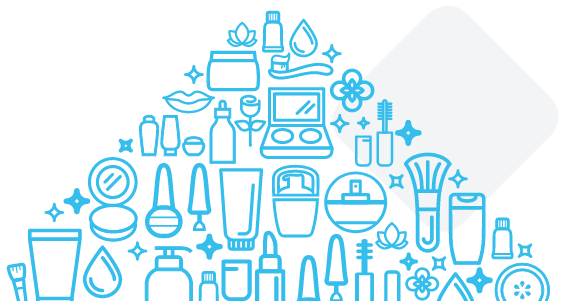Ingredient
AQUA
Name / description
Water
Function(s) of this ingredient in cosmetic products
FRAGRANCE FUNCTIONAL
Functional ingredient (excipient) of perfume oils and / or flavours
SOLVENT
Dissolves other substances
Occurrence in cosmetics
Creams, deodorants, lotions, cleansing products, shampoos, conditioners, hair tonics, facial toners, aftershaves, perfumes, mouthwashes, etc
Occurrence in other products
Foodstuffs, medicinal products, homecare products etc
Background information on use in cosmetics
Water (H2O), the foundation of life on earth, is a chemical compound of the elements oxygen (O) and hydrogen (H). Water is the only chemical compound in the world which occurs in nature as liquid, solid and gas. The name water is used for the liquid physical state. Purified water serves as solvent for many substances in cosmetics and hence constitutes the basis for many cosmetic products. In O / W creams it constitutes the outer phase, in W / O creams the inner phase of the emulsion. In hydrogels it is a carrier of the gel structure. Through the addition of water creams obtain a supple, soft appearance and can be applied better as a rule than water-free products which are perceived as too oily. According to the origin of the water it is distinguished between eg tap water, demineralised (distilled, deionised) water, spring water (mineral water), ground water, surface water (from rivers, seas, etc), rain water, thermal water and seawater. With the exception of the demineralised and rain water all types of water contain more or less large amounts of dissolved salts.
Information on safe use
For the production of cosmetic and pharmaceutical products purified, germ-free water is always used. This can be distilled water or water demineralised by ion exchanger or reverse osmosis.
Belongs to the following substance groups
Regulating cosmetics
Cosmetics Ingredients are subject to regulation. Please note, different regulations may apply to cosmetic ingredients outside the EU.



